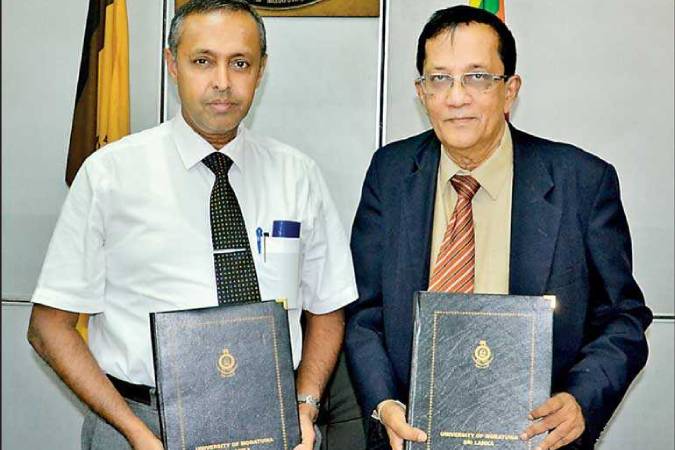A self- powered housing model for low income households will be devised with the aim of providing best architectural housing structure with the use of maximum daylight for low income households in Sri Lanka.
Public Utilities Commission of Sri Lanka (PUCSL), the electricity sector regulator, signed a Memorandum of Understanding (MoU) with the University of Moratuwa, on 15, July 2019 to collaborate and introduce this self- powered housing model for low income households.
“Energy Conservation is one of the functions that PUCSL is empowered with by the Sri Lanka Electricity Act and we have taken regulatory measures over the past years to promote energy conservation to stabilize increasing energy demand in Sri Lanka,” Saliya Mathew, Chairman of Public Utilities Commission of Sri Lanka said at the signing ceremony of the MoU.
The MoU will lead the University of Moratuwa and PUCSL to carry out a collaborative research project to identify the energy demand patterns of low-income households and to establish “End User Energy Demand Indices” with a sample housing model for low-income households in rural, estate and urban.
“This initiative fulfils a significant national need on satisfying Intended Nationally Determined Contributions (INDC) to reduce GHG emission from energy by 4% unconditionally and 16% conditionally (against 2010 baseline) by 2030. Moreover, this helps to promote awareness on energy efficiency and energy conservation among low-income families in Sri Lanka” Prof. K.K.C.K. Perera, Vice Chancellor, University of Moratuwa said.
The project led by Dr. Indika Rajapaksa- Senior lecturer, Department of Architecture of University of Moratuwa and Jayanat Herat – Director Corporate Communication of PUCSL, will investigate a sample of 300-350 houses in each district of Monaralagala, Kandy and Colombo in order to identify the low-income household energy usage patterns in rural, estate and urban.
The two-year project was proposed through the corporate plan of PUCSL 2019 with the aim of improving environmental conditions for every living being and to contribute towards easing the national burden related to energy costs in Sri Lanka.
(LI)

